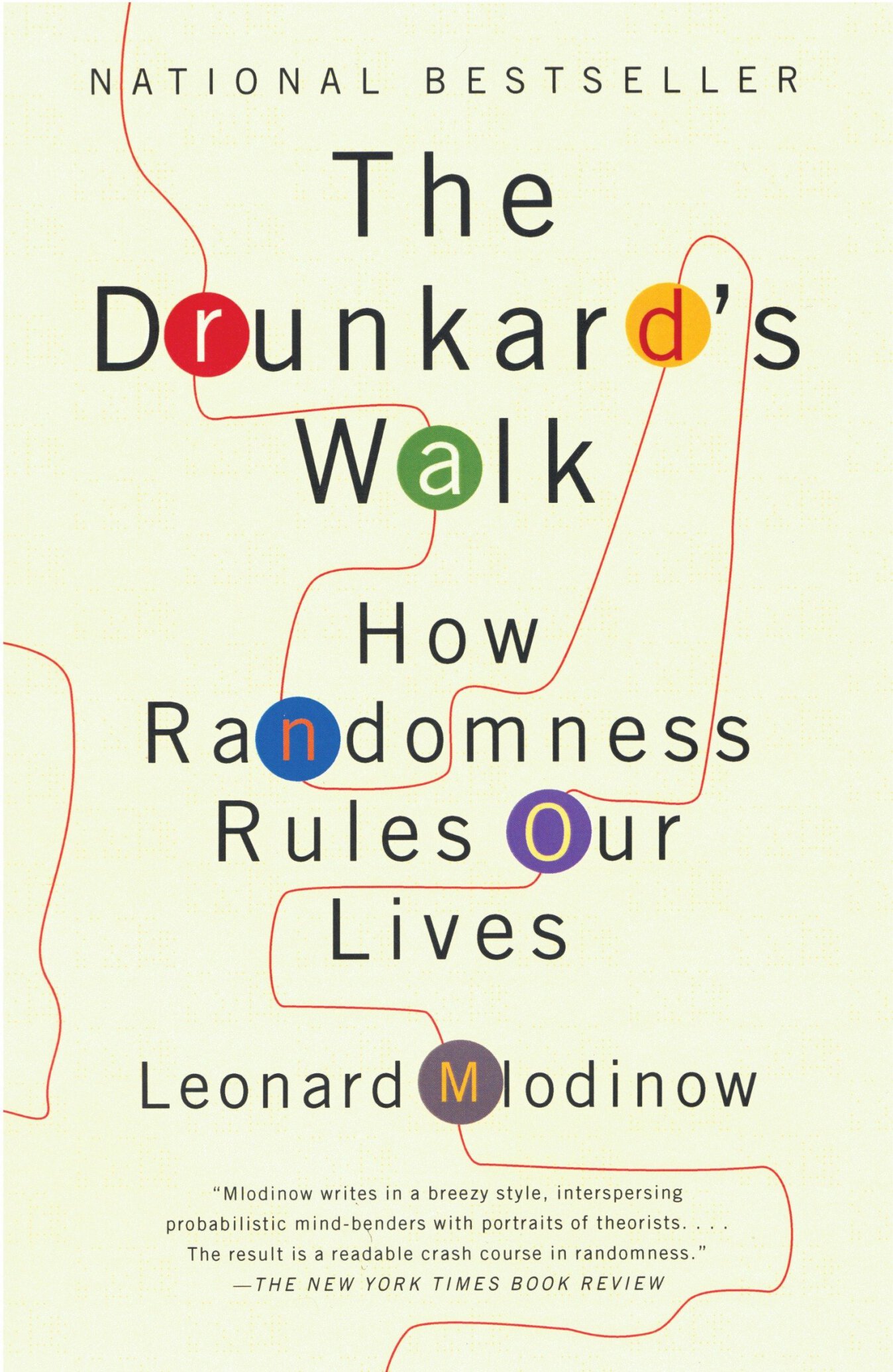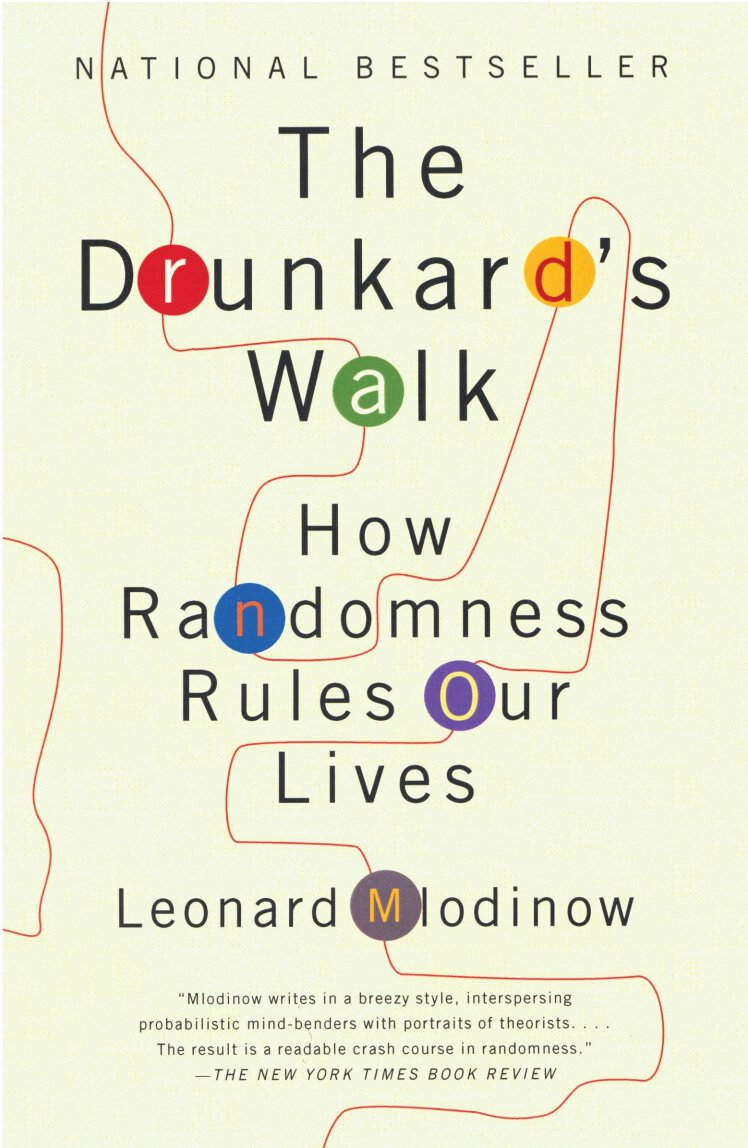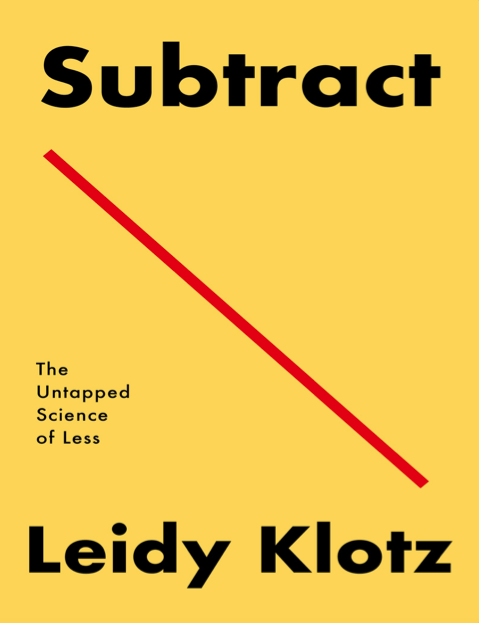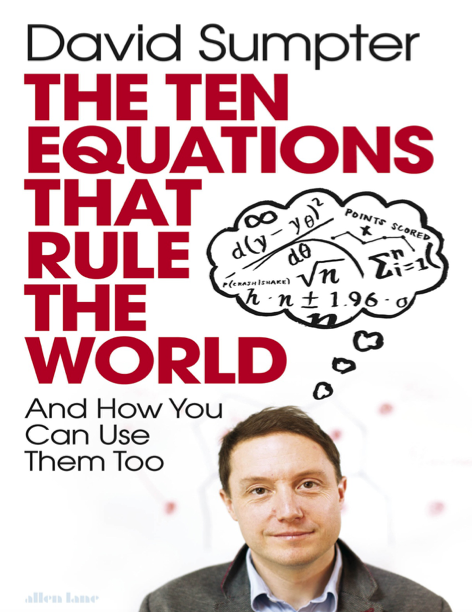The Drunkard’s Walk: How Randomness Rules Our Lives | Leonard Mlodinow
![]()
![]()
Leonard Mlodinow Probability & Statistics Business Decision Making Decision-Making & Problem Solving Chaos & Systems Mathematics Physics National Bestseller
- درباره کتاب
- مطالعه راحت
- بخشی از کتاب
- نسخه چاپی فارسی
- نظرات
In this irreverent and illuminating book, acclaimed writer and scientist Leonard Mlodinow shows us how randomness, change, and probability reveal a tremendous amount about our daily lives, and how we misunderstand the significance of everything from a casual conversation to a major financial setback. As a result, successes and failures in life are often attributed to clear and obvious cases, when in actuality they are more profoundly influenced by chance.
The rise and fall of your favorite movie star of the most reviled CEO--in fact, of all our destinies--reflects as much as planning and innate abilities. Even the legendary Roger Maris, who beat Babe Ruth's single-season home run record, was in all likelihood not great but just lucky. And it might be shocking to realize that you are twice as likely to be killed in a car accident on your way to buying a lottery ticket than you are to win the lottery.
How could it have happened that a wine was given five out of five stars, the highest rating, in one journal and in another it was called the worst wine of the decade? Mlodinow vividly demonstrates how wine ratings, school grades, political polls, and many other things in daily life are less reliable than we believe. By showing us the true nature of change and revealing the psychological illusions that cause us to misjudge the world around us, Mlodinow gives fresh insight into what is really meaningful and how we can make decisions based on a deeper truth. From the classroom to the courtroom, from financial markets to supermarkets, from the doctor's office to the Oval Office, Mlodinow's insights will intrigue, awe, and inspire.
Offering readers not only a tour of randomness, chance, and probability but also a new way of looking at the world, this original, unexpected journey reminds us that much in our lives is about as predictable as the steps of a stumbling man fresh from a night at the bar.
Editorial Reviews
Amazon.com Review
Amazon Guest Review: Stephen Hawking
Published in 1988, Stephen Hawkings A Brief History of Time became perhaps one of the unlikeliest bestsellers in history: a not-so-dumbed-down exploration of physics and the universe that occupied the London Sunday Times bestseller list for 237 weeks. Later successes include 1995s A Briefer History of Time, The Universe in a Nutshell, and God Created the Integers: The Mathematical Breakthroughs that Changed History. Stephen Hawking is Lucasian Professor of Mathematics at the University of Cambridge.
In The Drunkards Walk Leonard Mlodinow provides readers with a wonderfully readable guide to how the mathematical laws of randomness affect our lives. With insight he shows how the hallmarks of chance are apparent in the course of events all around us. The understanding of randomness has brought about profound changes in the way we view our surroundings, and our universe. I am pleased that Leonard has skillfully explained this important branch of mathematics. --Stephen Hawking
From Publishers Weekly
A drunkard's walk is a type of random statistical distribution with important applications in scientific studies ranging from biology to astronomy. Mlodinow, a visiting lecturer at Caltech and coauthor with Stephen Hawking of A Briefer History of Time, leads readers on a walk through the hills and valleys of randomness and how it directs our lives more than we realize. Mlodinow introduces important historical figures such as Bernoulli, Laplace and Pascal, emphasizing their ideas rather than their tumultuous private lives. Mlodinow defines such tricky concepts as regression to the mean and the law of large numbers, which should help readers as they navigate the daily deluge of election polls and new studies on how to live to 100. The author also carefully avoids veering off into the terra incognita of chaos theory aside from a brief mention of the famous butterfly effect, although he might have spent a little more time on the equally famous n-body problem that led to chaos theory. Books on randomness and statistics line library shelves, but Mlodinow will help readers sort out Mark Twain's damn lies from meaningful statistics and the choices we face every day. (May 13)
Copyright © Reed Business Information, a division of Reed Elsevier Inc. All rights reserved.
Review
“A wonderfully readable guide to how the mathematical laws of randomness affect our lives.”--Stephen Hawking, author of A Brief History of Time
"The Drunkard's Walk is a magnificent exploration of the role that chance plays in our lives. Often historical, occasionally hysterical, and consistently smart and funny, this book challenges everything we think we know about how the world works. The probability is high that you will be entertained and enlightened by this intelligent charmer."--Daniel Gilbert, professor of psychology, Harvard University, and author of Stumbling on Happiness
"Fast, chatty, very readable, and a fine introduction to ideas that everyone should know." --David Berlinski, author of A Tour of the Calculus
“A primer on the science of probability.”–The Washington Post Book World
“Mlodinow writes in a breezy style, interspersing probabilistic mind-benders with portraits of theorists ...The result is a readable crash course in randomness.”–The New York Times Book Review
“A jaunty read worthy of any beach or airplane. . . . Mlodinow has an intimate perspective on randomness. . . . He draws direct links from the works of history's greatest minds to the deeds of today's not-so-great ones, explaining phenomena like the prosecutor's fallacy (which helped acquit O.J. Simpson) and the iPod shuffle function (eventually programmed not to be truly random, lest songs hit upon eerie playing streaks).”–The Austin Chronicle
“Please read The Drunkard’s Walk: How Randomness Rules Our Lives by Leonard Mlodinow, a history, explanation, and exaltation of probability theory. . . . Mlodinow . . . thinks in equations but explains in anecdote, simile, and occasional bursts of neon. . . .The results are mind-bending.”–Fortune
“Challenges our intuitions about probability and explores how, by understanding randomness, we can better grasp our world.”–Seed Magazine
“[Mlodinow is] the perfect guy to reveal the ways unrelated elements can relate and connect.”–The Miami Herald
About the Author
Leonard Mlodinow received his doctorate in physics from the University of California, Berkeley, was an Alexander von Humboldt fellow at the Max Planck Institute, and now teaches about randomness to future scientists at Caltech. Along the way he also wrote for the television series MacGyver and Star Trek: The Next Generation. His previous books include Euclid's Window: The Story of Geometry from Parallel Lines to Hyperspace, Feynman's Rainbow: A Search for Beauty in Physics and in Life, and, with Stephen Hawking, A Briefer History of Time. He lives in South Pasadena, California.
From The Washington Post
Reviewed by Christopher Shea
Leonard Mlodinow has had, to speak informally, a pretty random career: He earned a PhD in physics from Berkeley, wrote for "MacGyver" and "Star Trek" and has now settled down as a science popularizer.
A far more sober instance of randomness, however, underpins his new book, The Drunkard's Walk. And it's not hard to see it as a sort of Rosebud, explaining why the author finds unpredictability so compelling. During World War II in the Nazi death-camp Buchenwald, his father and other starving inmates had been told they'd be killed one-by-one until someone confessed to stealing some bread that had gone missing. Upon confessing, Mlodinow's guilty father was not executed, as expected, but promoted to serve as the chef's assistant. A different capricious decision then, and the author Leonard Mlodinow would not exist today.
It's been said that what divides liberals and conservatives is the degree to which each thinks luck plays a role in where one ends up in life. For Mlodinow, "There but for the grace of God" is a mathematical (if not theological) truth. In A Drunkard's Walk, which takes its title from scientific slang for a purely random succession of events, Mlodinow argues that it is quintessentially human to stamp the results of largely arbitrary processes as, in retrospect, inevitable.
Shifting from his own family's encounters with fate, for example, he notes that it is hard to imagine a world without Harry Potter, yet publishers rejected J.K. Rowling's manuscript nine times before someone finally said yes. There's a self-helpish lesson here: Whether we succeed in life is partly out of our hands -- think of the other worthy authors whose manuscripts languish in desk drawers -- but by persisting we offer lightning more chances to strike.
Sandwiched in this book between a morally freighted opening and conclusion is a primer on the science of probability. "Probability is the very guide of life," Cicero wrote. If so, most of us are mapless. We put our money in the hands of moneymen with the best records over the past (say) five years, ignoring research that demonstrates that these big-swinging stockpickers are as likely as their peers to wind up at the bottom of the pile over the next five-year period.
Even the scientifically literate can be confounded by probability. Mlodinow once tested positive for HIV, at which point his doctor sadly told him that there was a 99.9 percent chance he had a death sentence. But the doctor had failed to properly balance the 1-in-1,000 chance of a false positive against the 1 in 10,000 chance that a man in Mlodinow's demographic (heterosexual, married, white, non-IV-drug-user) had the virus. Within that group, only 1 in 11 people who test positive is truly infected; Mlodinow wasn't.
Once in a while, Mlodinow sends you scurrying for a statistics textbook when he ventures into deeper mathematical waters or skips steps in his explanations, but when things get slow, there's usually a diverting historical detour. This is the kind of book in which you learn that Pascal, after he set aside his work on statistics, took to wearing "an iron belt with points on the inside so that he was in constant discomfort," lest the siren song of happiness tempt him.
Nudge, in contrast, is a much more policy-oriented book. It comes with substantial advance publicity, thanks in part to the imprimatur of Sen. Barack Obama, who has embraced some of the authors' proposals, which are underpinned by libertarian paternalism. ("Paternalism" because the authors want to steer people to make better choices; "libertarian" because they feel people should still be free to make bad ones.)
Like Mlodinow, Richard Thaler, a pioneer of so-called behavioral economics, and Cass Sunstein, a noted law professor, discuss numerous studies that show just how far short humans fall from the ideal of homo economicus. Inertia, herd behavior, ignorance of odds, and egotism conspire to cause people to make bad decisions and poor predictions. (Typically, only 5 percent of Thaler's business school students say that they will end up in the bottom half of his class.)
Thaler and Sunstein's best-known proposal has to do with 401(k) plans. When people fail to sign up for such plans, they are leaving money on the table -- especially when employers match employees' contributions -- not to mention raising the odds they'll be subsisting on chunk light tuna in retirement. One study found that enrolling workers automatically in these plans -- switching from an "opt in" system to "opt out" -- drove participation in the plans from 65 percent to 98 percent.
In the arena of organ donation, switching to an opt-out system could save thousands of lives annually. One study in Iowa found that 97 percent of residents supported organ transplantation, yet only 43 percent of those people had checked the relevant box on their driver's license application. That gap could be closed if participation in organ-donor programs were the default position. If opt-in seems too aggressive when it comes to bodily organs, even a "forced choice" could improve the situation. Demanding that people give a clear yes or no would surely raise the number of donors, given the popularity of the concept.
Some nudges might be purely informational. How much of the current mortgage crisis would have been averted had prospective homeowners been presented with a clear, readable document laying out some of the bad-case scenarios when their low, teaser interest rates ended?
And there's more! What about a debit card explicitly reserved for charitable donations, which would make it a cinch to keep track of tax deductions and encourage more giving? Or software that detects uncivil language in your e-mail and asks if you really want to send it?
In the end, it must be said, the profusion of proposals in Nudge, however worthy, and the countless summaries of studies supporting them grow a bit wearisome. As influential as the book is likely to be, it's hard to imagine it pushing its way alongside Malcolm Gladwell's Blink (inferior social science, far breezier style) on the bestseller list. Then again, who dares judge the odds of the publishing biz? None of us knows when lightning will strike.
با وجود اینکه هنوز بسیاری از کتابخوانها [ی حرفهای] ترجیح میدهند از کتاب چاپی برای مطالعه استفاده کنند ولی شمار کتابخوانهایی که بهتدریج از کتاب الکترونیک به عنوان مکمل یا منبع اصلی مطالعه استفاده میکنند کم نیست. فارغ از نوآوریهای جالبتوجه در زمینهی کتابخوانهایی همانند Kindle کمپانی آمازون، امکان و قابلیت نرمافزاری ساده، کارآمد و در دسترس مطالعهی کتاب با فرمت ePub از نظر بسیاری از کتابخوانها دور مانده است؛ بر اساس تجربهی مستقیم ما، شاهد بودهایم که بسیاری از افرادی که به صورت حرفهای به دنبال کتابهای زبان اصلی برای مطالعه روی کامپیوتر، تبلت و موبایل خود هستند با فرمت ePub آشنایی درستی ندارند.
پر واضح است که لمس کتاب بهصورت فیزیکی و بوی خوش کاغذ تجربهای لذتبخش و بیمانند است که همچنان در بین کتابخوانهای حرفهای در سراسر دنیا هواداران بسیاری دارد. البته، وقتی یکی از دغدغههای کتابخوان سهولت مطالعهی کتاب تحت هر شرایطی باشد اینجاست که نیاز به استفاده از کتاب الکترونیک حس میشود. با توجه به ویژگیهای مناسب کتابهای الکترونیک با فرمت ePub نگرانی ضعیف شدن بینایی و خستگی چشم بر اثر نگاه مستقیم به صفحهی نمایش تا حد بسیار زیاد و قابلتوجهی کاسته میشود.
کتاب الکترونیک با فرمت ePub این قابلیت را به خواننده میدهد تا بتواند رنگ زمینه، نوع فونت و سایز فونت را برای مطالعهی کتاب خود انتخاب کنند. همچنین خواننده این امکان را دارد که روی نوشته یادداشت بنویسد، جملهای را هایلایت کند و یا صفحه یا صفحاتی از کتاب را بوکمارک کند.
خوشبختانه نرمافزارهای کتابخوان الکترونیکی رایگان بسیاری وجود دارد که از فرمت PDF و ePub پشتیبانی میکنند. این کتابخوانهای الکترونیک قابل نصب روی انواع موبایلهای اندرویدی، آیفون، لپتاپهای ویندوزی و مکبوک است.
:این کتاب توسط ۲ ناشر منتشر شده است
نشر آریانا قلم | بازی بخت | ترجمه محمدابراهیم محجوب
نشر میلکان | سلطهی بخت | ترجمه مینا صفری











هنوز نظری ثبت نشده
اولین نفری باشید که نظر میدهید
ثبت نظر